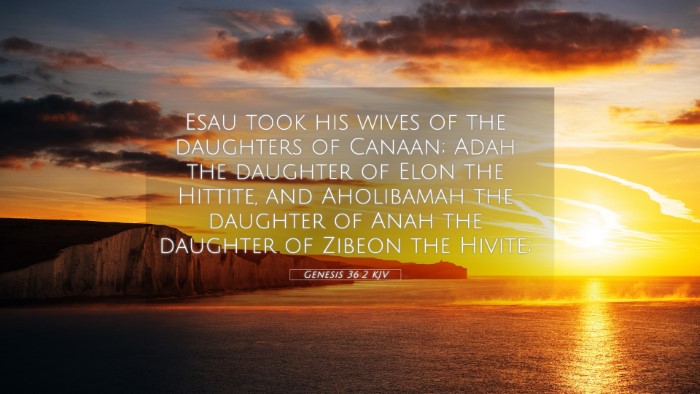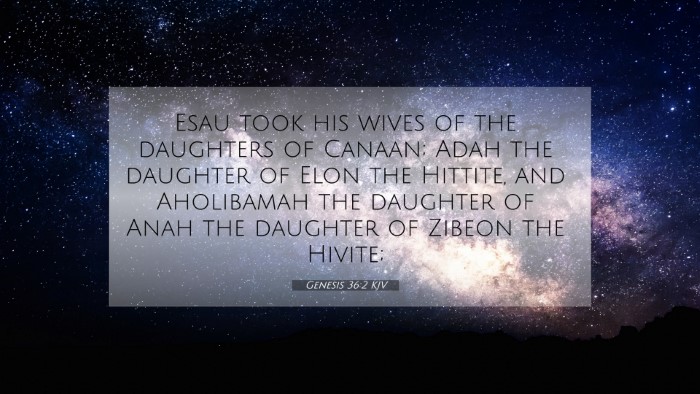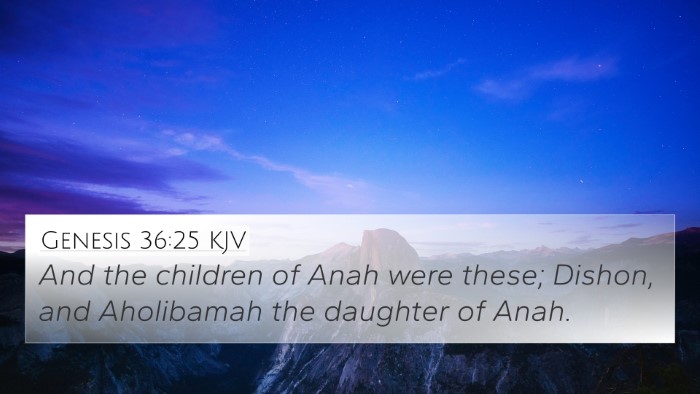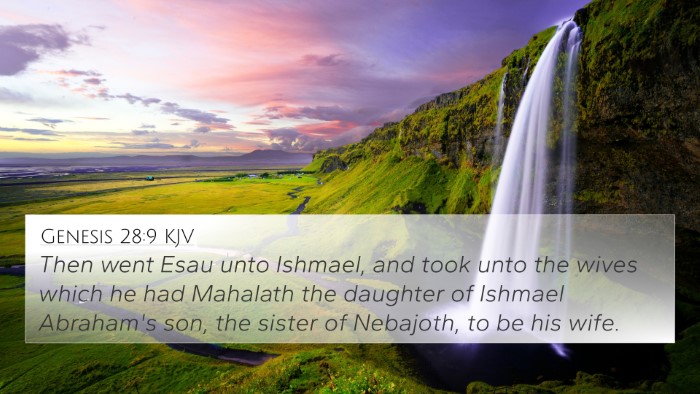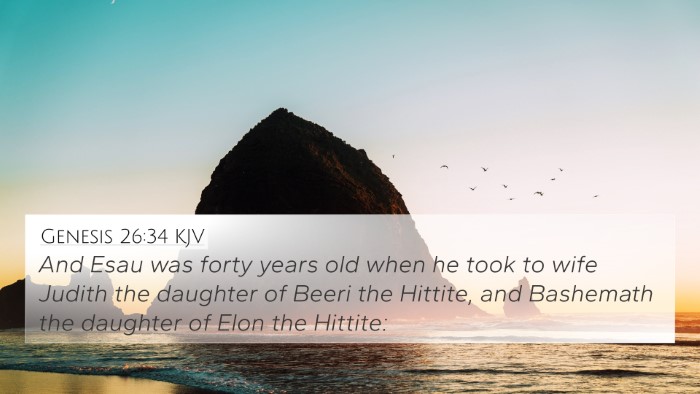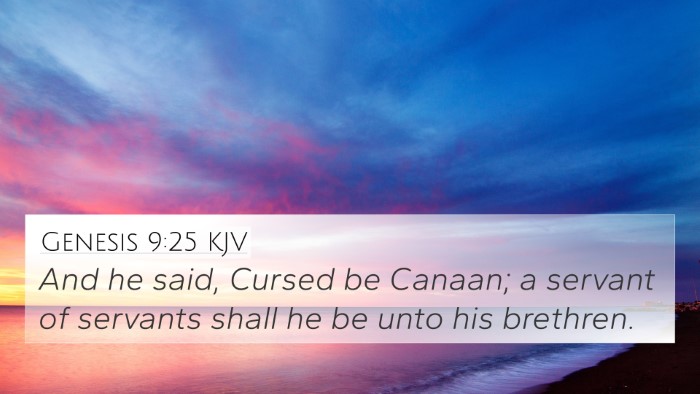Understanding Genesis 36:2
Genesis 36:2 states: "Esaú tomó a sus mujeres de las hijas de Canán; a Adá, hija de Elón hetéo, y a Aholibamá, hija de Ana, hija de Sibeón heveo." This verse marks a significant moment in the genealogical history of the descendants of Esau, providing insight into the alliances and cultural practices of the time.
Interpretative Insights
Commentaries by Matthew Henry, Albert Barnes, and Adam Clarke reveal several key themes concerning this verse.
- Historical Context: This verse emphasizes Esau's intermarriage with the Canaanites, showcasing the blending of cultures and the importance of alliances in ancient times.
- Character of Esau: Esau’s choices illustrate his embodiment of decisions that diverged from Abrahamic covenant practices, highlighting his role in Biblical narratives as a figure of fleshly desires against spiritual lineage.
- Significance of Names: The names mentioned—Adah and Aholibamah—carry meanings that may reflect the maternal heritage of Esau's lineage, reinforcing connections to local tribes and peoples of the land.
Connections with Other Scriptures
To fully grasp the meaning of Genesis 36:2, it is useful to explore its connections with other Bible verses. The following cross-references provide additional layers of understanding:
- Genesis 26:34-35: Highlights Esau's wives and their implications on Isaac and Rebekah’s household.
- Deuteronomy 2:12: Discusses Esau's descendants and their settlement, illustrating the fulfillment of God's promises to Abraham.
- Genesis 28:6-9: Relays Esau's marriage to Canaanite women in the context of Jacob's journey, contrasting choices made within the same family.
- Malachi 1:2-3: Reflects on God's love for Jacob and hatred for Esau, underscoring the spiritual implications of their lineages.
- Hebrews 12:16-17: Warns against profane behaviors exemplified by Esau, emphasizing the consequences of his decisions.
- Romans 9:13: Discusses God's sovereign choice in the context of Jacob and Esau, tying back to their historical narrative.
- Luke 3:36: Includes Esau in the genealogy of Jesus, connecting the Old Testament patriarchs with the New Testament messianic fulfillment.
Thematic Bible Verse Connections
Esau's lineage represents broader themes of choices, consequences, and divine sovereignty. The verse connects with several significant Biblical themes:
- Faith vs. Flesh: The choice to marry Canaanites reflects the tension between spiritual fidelity and earthly ties.
- Covenantal Heritage: By marrying outside the chosen line, Esau creates a narrative of divergence from God's covenant promise.
- Divine Sovereignty: Esau's decisions, while autonomous, unfold within God's overarching plan, exemplifying the paradox of human responsibility and divine orchestration.
Application for Readers
For today's believers, Genesis 36:2 offers vital lessons on the importance of spiritual alignments, the effects of personal choices, and the understanding that every action has implications in God’s greater narrative.
When using a Bible cross-reference guide, one can look for similar instances where family decisions affect the broader scope of God’s plan, and how Biblical characters navigate inter-family relationships.
This verse is a reminder for believers to consider how their decisions align with their faith journey and the impact those choices may have on future generations.
Conclusion
Genesis 36:2 is far more than a genealogical record; it serves as a profound reminder of the intertwined destinies shaped by personal decisions and God's sovereign will.
Engaging with this verse and its connections allows for a deeper appreciation of the way Scripture dialogues throughout the Bible, creating a rich tapestry of faith and history.

